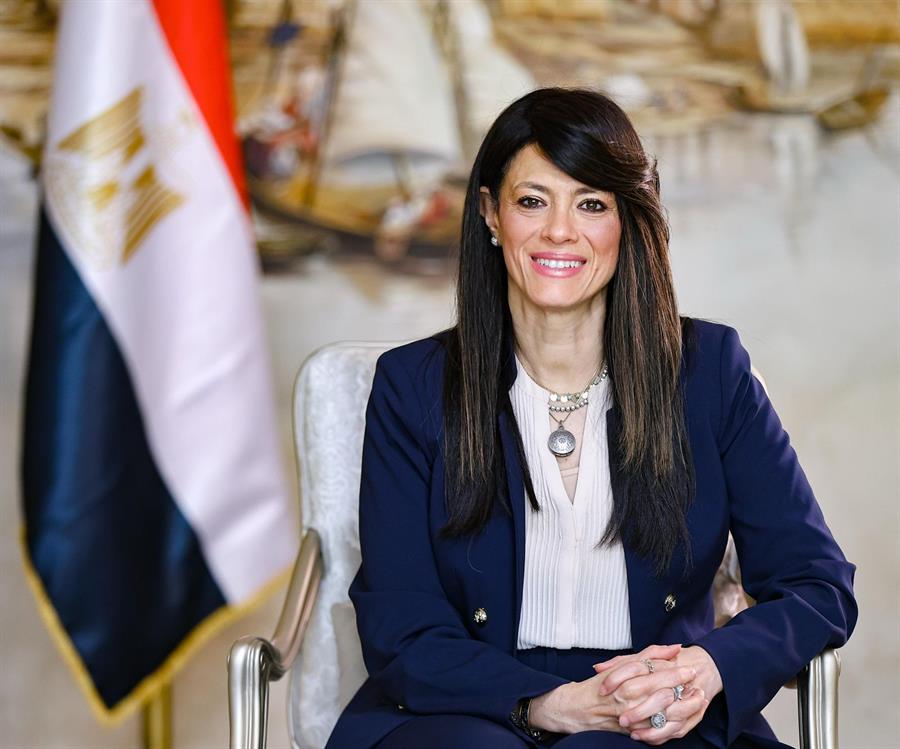Minister of Planning, Economic Development and International Cooperation Participates in the National Workshop for the UN “Convergence” Initiative on Integrating Health and Food Systems with Climate Action

15 July 2025
Al-Mashat: Strengthening the Resilience of Food Systems and Linking them to Climate Action is Essential for Achieving Sustainable Development
We Continue to Coordinate with Development Partners to Mobilize Climate Investments for Food Security Projects under the "NWFE" Program
H.E. Dr. Rania A. Al-Mashat, Minister of Planning, Economic
Development and International Cooperation, delivered an opening speech at the
National Workshop of the UN "Convergence" Initiative, which focuses
on linking health and food systems with climate action.
This initiative was launched by the UN Secretary-General
during COP28 in the United Arab Emirates, aiming to align the transformation of
food systems with climate action to achieve the 2030 Agenda and the goals of
the Paris Agreement.
The UN Food Systems Coordination Hub is responsible for its
implementation.
In her speech, delivered via video, H.E. Dr. Rania Al-Mashat
emphasized Egypt's keenness to enhance its leadership in linking food systems,
nutrition, and the climate agenda, within the ambitious vision of the UN
initiative.
H.E. Dr. Al-Mashat pointed to the UN Secretary-General's
statement, which indicated that while the midpoint towards 2030 has been
reached, more than half of the Sustainable Development Goals (SDGs) are still
lagging. She added that despite this, the future of food systems and the future
of climate action are not parallel paths but are deeply interconnected.
H.E. Minister Al-Mashat highlighted that Egypt has chosen a
different path based on integration, innovation, and investment. Egypt has
taken bold steps to become one of the first in the region to conduct a
comprehensive national dialogue on food systems, bringing together government,
private sector, civil society, and academia to reimagine how food systems
function. This dialogue formed the foundation for the national pathway.
H.E. Dr. Al-Mashat also underscored the launch of the
National Climate Change Strategy 2050, which reflects Egypt's belief that food
security and climate resilience are two sides of the same coin. She also noted
the launch of the "NWFE" platform (Nexus of Water, Food, and Energy),
not merely as a tool for development, but as a genuine investment tool linking
planning with capital.
H.E. Minister Al-Mashat mentioned that through
"NWFE," Egypt is mobilizing over $14.7 billion in climate-aligned
investment opportunities, clarifying that the United Nations and various
institutions have praised the platform as a model for converting national
climate commitments into investable projects, particularly in the areas of food
and water security. She affirmed that Egypt is currently transitioning from the
planning stage to partnerships, and from policies to implementation.
H.E. Dr. Al-Mashat reiterated that through the UN initiative
for the convergence of food systems and climate action, further steps will be
taken on the path of integration. When food policies align with climate goals,
and when nutrition is treated as a foundation for development rather than a
secondary matter, it strengthens resilience in national policies and the
economy.
H.E. Minister Al-Mashat pointed out that according to global
estimates, every dollar invested in reducing malnutrition can yield a return of
up to $16 through improved health, productivity, and economic growth. She
referred to the "Golden Thousand Days" initiative, which represents a
crucial window for achieving human development, ensuring that today's
investments bear fruit for decades to come.
H.E. Dr. Al-Mashat outlined the vital role of the private
sector in this process, noting that with agriculture contributing 11% of
Egypt's GDP and 28% of total employment, this sector remains a key pillar for
both economic growth and rural livelihoods. She stressed that opening up to
private investment and innovation across food value chains will be key to
achieving long-term sustainability.
H.E. Minister Al-Mashat concluded by referencing the Food
and Agriculture Organization's (FAO) estimates showing that food and
agriculture systems account for one-third of total greenhouse gas emissions,
yet receive less than 10% of climate finance. She explained that through
"NWFE" and initiatives like the current workshop, Egypt is working to
bridge this gap by advancing the ability of projects that achieve development
and climate goals to attract investment.









